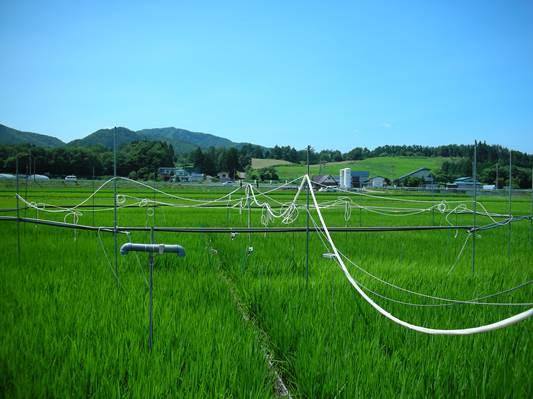Global warming: High carbon in air affects crop nutrient quality

Yet another study warns that global warming could affect the quality of crops by inhibiting nutrient absorption.
Done on wheat and rice, the study by researchers at the University of Gothenburg saw that rising levels of carbon dioxide in the atmosphere affect absorption of nitrogen by plants, which is a vital nutrient for most crops.
The low concentration of nitrogen in tissues was seen regardless of plant growth.
The study examined various types of ecosystems, including crops, grasslands and forests, and involved large-scale field experiments conducted in eight countries on four continents.
"The findings of the study are unequivocal. The nitrogen content in the crops is reduced in atmospheres with raised carbon dioxide levels in all three ecosystem types. Furthermore, we can see that this negative effect exists regardless of whether or not the plants' growth increases, and even if fertiliser is added. This is unexpected and new," says Johan Uddling, senior lecturer at the Department of Biological and Environmental Sciences at the University of Gothenburg.
Reduced nitrogen content in atmospheres with raised carbon dioxide has previously been attributed to a kind of dilutive effect, but the present study shows reduced nitrogen in plants even when growth is not affected.
"Moreover, the effect is there in trials with powerful fertiliser, which indicates that it is not down to limited access to nitrogen in the soil. Future studies should look at what is causing the effect, but it appears to be linked to plants' capacity to absorb nitrogen rather than to changed levels in the soil," says Uddling.
The strength of the effect varies in different species of grassland.
"For all types of ecosystem the results show that high carbon dioxide levels can impede plants' ability to absorb nitrogen, and that this negative effect is partly why raised carbon dioxide has a marginal or non-existent effect on growth in many ecosystems," says Uddling.
Studies done at Michigan and elsewhere have shown that the ability of plants to store excess carbon under warming conditions would be hampered due to reduced access to nitrogen.
The present study has been published in the journal Global Change Biology.
Role of nitrogen
Nitrogen is a major component of amino acids, the building blocks of proteins.
It is also a major component of chlorophyll, needed by plants to use sunlight to produce sugars from water and carbon dioxide.
Nitrogen is a component of energy-transfer compounds, such as ATP which allows cells to conserve and use the energy produced.
Finally, nitrogen also forms a significant component of nucleic acids such as DNA.
While nitrogen is present in air, most plants absorb it from soil through the roots. Nitrogen gets into the soil by being "fixed" from the air by microbes and certain plants like soy.
Most of the nitrogen is used by the plant to produce protein (in the form of enzymes) and nucleic acids.
While photosynthesis sees plants convert carbon dioxide, water and sunlight into the fuel they need to grow, locking up carbon in their branches, this process has been found to be limited by low nitrogen availability.
With rising carbon levels there will not be adequate nitrogen, even provided through fertilisers and extra plant growth can drop to 29%, showed earlier studies. In such a scenario, the land releases more carbon than it absorbs.
© Copyright IBTimes 2025. All rights reserved.





















